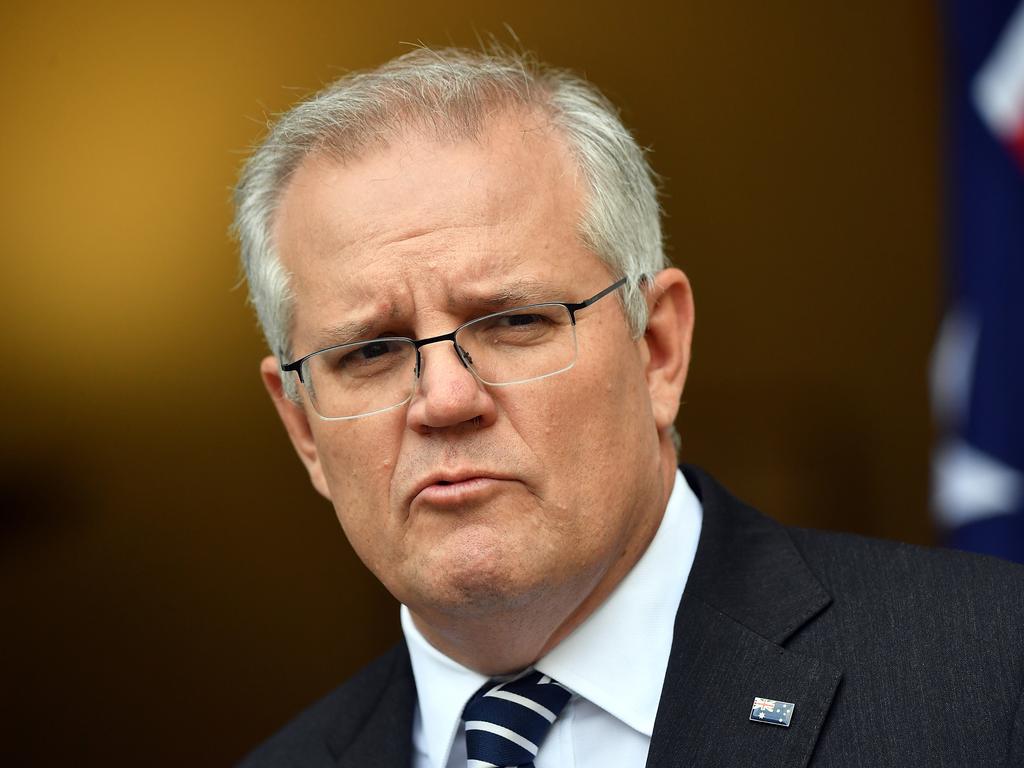
With the two-party-preferred vote tightening ahead of an election next year, however, the opposition is looking for a miracle. Following years of internal division and revolving-door leadership in the Liberal partyroom, the Prime Minister is working to maintain unity on key policies while Labor is embroiled in factional wars.
The latest Newspoll has Labor and the Coalition neck-and-neck on the 2PP vote. Since the 2019 election, the opposition has increased its primary and 2PP vote while the government’s popularity has decreased on both counts. Since January, there has been a significant nine-point decrease in satisfaction with Morrison’s performance, most likely due to fallout over the Covid vaccine rollout. However, Anthony Albanese is still trailing Morrison as preferred prime minister. Only 38 per cent of voters are satisfied with the Opposition Leader’s performance compared with 54 per cent who express satisfaction with Morrison as the nation’s leader.
Despite accruing political capital from allegations of sexual assault made by former Liberal staff, as well as public dissatisfaction with management of the vaccine rollout, Albanese is failing to sustain popular approval. In areas where left-wing parties typically win the contest, such as climate change, Labor has yet to register an impact. In part it is failing because the Liberals have emerged from the pandemic as a party of big-state conservatism.
The opposition cannot rebuke the Coalition for creating intergenerational debt and sell a big-spender agenda simultaneously. Unless Labor can find a way to make climate policy look like a debt and deficit buster and win the hearts of people concerned about the cost of living, electoral success will elude it.
Two years after Labor’s shock electoral loss, the party’s policy proposals are still in disarray. Its relentless focus on oppositional politics works to the detriment of substantive policy development.
In core areas, such as climate policy, Labor is a party divided. The problem is not a lack of ideas but political realism is missing in action. Albanese’s proposal to increase regional employment by replacing fossil-fuel industry with green technology might be sound if due diligence were followed and taxpayers were not left with the bill. But Labor is repeating past mistakes by failing to provide a business case for climate proposals. It has not sold the green industrial revolution to the public.
Where is the cost-benefit analysis, comprehensive modelling and strategic plan with short, medium and long-term targets? A year out from the election, Labor needs more than ideas. It needs costed policies that build a bridge between the industrial past and the technological future. Instead, it is expending its energy on factional trench warfare between coal realists and green idealists.
Another factor is working against Labor’s politics of opposition: Australians are optimistic about the nation’s future. A recent Ipsos poll surveyed people in 28 nations about what worries them. It found Australians more optimistic about the future than people from any other nation except Saudi Arabia. Most Australians surveyed (62 per cent) say they believe the country is “heading in the right direction”. Conversely, almost the same proportion (65 per cent) in other parts of the world say their nations are on the wrong track.
Australia also is performing fairly well in other areas. Five of our universities have been listed in the top 50 of the 2022 QS World University Rankings (although only the Australian National University made the top 30). And despite the hot air from fashionable quarters, Australia’s emissions are reducing at a reasonable rate. In April, the Prime Minister stated that emissions fell by 3 per cent in the year to June last year and the nation had the lowest level of emissions since 1998. By comparison, New Zealand and Canada had reduced their emissions by 1 per cent and less than 1 per cent, respectively. On a per capita basis, we are deploying renewables 10 times faster than the global average.
While there is an eye-watering trillion-dollar debt burden looming in Australia’s future, the nation is punching above its weight on many international measures.
In this year’s Index of Economic Freedom, Australia is ranked third out of 178 countries. Since the inception of its index in 1995, the Heritage Foundation has recognised Australia as a land of the free and prosperous, in relative terms. This year, the foundation noted the overall national score had decreased by 0.2 points, primarily due to higher government spending. The spending spree could open a window of opportunity for an opposition party with a record of fiscal restraint, but austerity is to Labor what labour is to Hollywood housewives.
The two-party system provides for electoral choice, given a contest of good ideas precedes a general election. For some time, however, rational choice has fallen victim to half-baked policies from an opposition that fails to make the national interest its first priority. It is not too late for Labor to enter the ring. But if it wants to fight Morrison it must quiet the factional gunslingers and make policy development a priority.





The Coalition’s domination of national politics is set to continue. Labor’s best efforts and a decrease in Newspoll support for Scott Morrison are not yet substantial enough to constitute a real threat to the government.